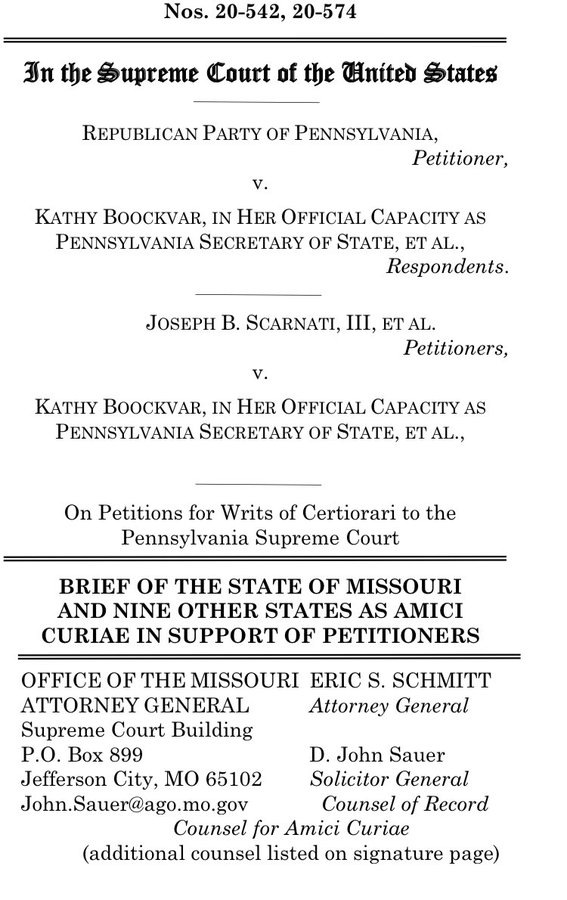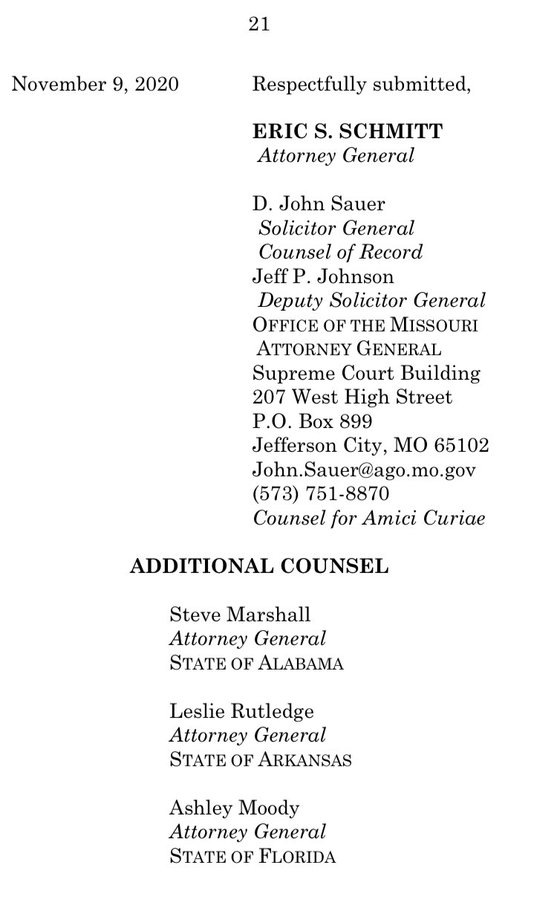













PRELIMINARY STATEMENT
Petitioners ask this Court to undertake one of the most dramatic, disruptive
invocations of judicial power in the history of the Republic. No court has ever issued
an order nullifying a governor’s certification of presidential election results. And for
good reason: “Once the door is opened to judicial invalidation of presidential election
results, it will be awfully hard to close that door again. . . . The loss of public trust in
our constitutional order resulting from the exercise of this kind of judicial power
would be incalculable.” Order, Wis. Voters All. v. Wis. Elections Comm’n, No.
2020AP1930-OA, at 3 (Wis. Dec. 4, 2020) (Hagedorn, J., concurring).
In seeking such unprecedented relief, Petitioners might be expected to present
claims of the utmost constitutional gravity. Instead, the pair of claims they advance
are fundamentally frivolous. Neither claim was pressed or passed upon below.
Neither claim implicates a circuit split. Both claims are mired in procedural and
jurisdictional defects that preclude this Court’s review. The first question—which
seeks to raise Elections and Electors Clause challenges to Act 77—is not actually
presented by this case. And the second question—which argues that the Pennsylvania
Supreme Court violated the First and Fourteenth Amendments in its application of
laches—asks this Court to constitutionalize huge swaths of state procedural law
without any credible basis in constitutional principles or this Court’s precedents.
Even if Petitioners could surmount these obstacles, they would still need to
justify the relief they seek. This first-of-its-kind injunction raises major constitutional
questions. Yet Petitioners address none of them. They do not explain how a remedy
2
premised on massive disenfranchisement would accord with the Due Process Clause,
which requires the counting of votes cast in reasonable reliance on existing election
rules as implemented and described by state officials. Nor do they seek to square their
position with the separation of powers, the Twelfth Amendment, or basic principles
of federalism—all of which foreclose the injunctive relief that Petitioners seek here.
These failings also explain why equity stands as an insuperable obstacle to
Petitioners’ application. “Democracy depends on counting all lawful votes promptly
and finally, not setting them aside without weighty proof. The public must have
confidence that our Government honors and respects their votes.” Donald J. Trump
for President, Inc. v. Pennsylvania, No. 20-3371, 2020 WL 7012522, at *9 (3d Cir. Nov.
27, 2020). But Petitioners would throw all that to the wind. After waiting over a year
to challenge Act 77, and engaging in procedural gamesmanship along the way, they
come to this Court with unclean hands and ask it to disenfranchise an entire state.
They make that request without any acknowledgment of the staggering upheaval,
turmoil, and acrimony it would unleash. In issuing equitable relief, this Court rightly
seeks to avoid inflaming social disorder. So to say that the public interest militates
against Petitioners would be a grave understatement. Their suit is nothing less than
an affront to constitutional democracy. It should meet a swift and decisive end.

















 請查閱第一帖
請查閱第一帖